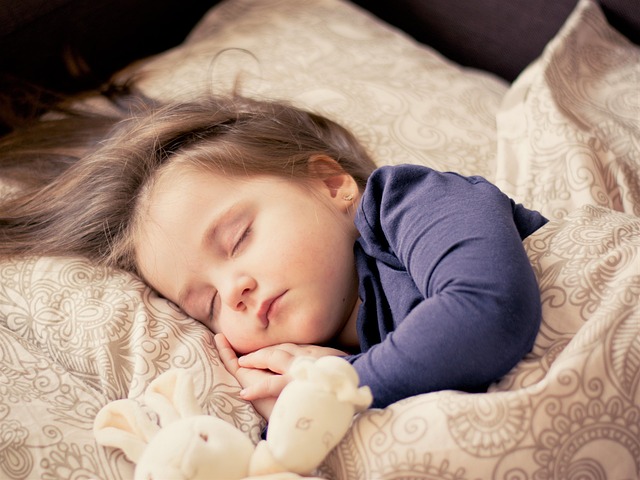Managing bedroom conditions to reduce nocturnal perspiration
Nighttime sweating can disrupt rest and signal underlying issues. Adjusting bedroom conditions — from temperature and humidity to bedding and clothing choices — can help reduce nocturnal perspiration for many people. This overview covers practical environmental changes and lifestyle factors to consider alongside medical causes like endocrine conditions or medication effects.

Night sweating can be caused by simple environmental factors as well as health issues. Improving bedroom conditions often helps reduce nocturnal perspiration by supporting the body’s natural thermoregulation and promoting uninterrupted sleep. Small adjustments to temperature, humidity, bedding, and clothing, together with attention to hydration, diet, and stress, can make nights noticeably cooler for many people while also addressing triggers related to menopause, hyperhidrosis, or medication use.
This article is for informational purposes only and should not be considered medical advice. Please consult a qualified healthcare professional for personalized guidance and treatment.
Why does sweating increase at night?
The body’s thermoregulation shifts during sleep, affecting core temperature and sweat production. Nocturnal sweating can be a normal response to high room temperature, heavy bedding, or elevated humidity. It can also reflect physiological triggers such as menopause-related hot flashes, hyperhidrosis, or side effects from certain medication. Additionally, endocrine disorders, alcohol use, and stress can raise baseline sweating. Identifying whether night sweating is primarily environmental or medical helps target effective bedroom changes alongside any necessary clinical evaluation.
How can room temperature and humidity help?
Keeping bedroom temperature on the cooler side supports natural heat loss. Most people sleep better between roughly 60–67°F (15–19°C), though personal comfort varies. Controlling humidity is also important: excessive humidity reduces evaporation and makes sweat linger, while very dry air may cause discomfort. Using a fan, improving ventilation, or running an air conditioner or dehumidifier can stabilize temperature and humidity levels. Monitoring indoor conditions with a hygrometer helps you find a range that reduces sweating without creating discomfort from overcooling.
What bedding and clothing choices reduce sweat?
Selecting breathable bedding and sleepwear reduces trapped heat. Look for natural or moisture-wicking fabrics—cotton, bamboo, or certain technical blends—that aid evaporation. Consider lighter-weight duvets or layered blankets so you can easily adjust warmth overnight. Mattress protectors and pillows made for cooling can also help surface temperature management. Avoid heavy synthetic materials that trap heat. For people with severe nocturnal sweating, moisture-wicking sleepwear and a mattress pad that allows airflow can make a meaningful difference in sleep quality.
Can hydration, diet, alcohol, and stress affect night sweating?
Hydration status influences thermoregulation: both dehydration and excessive fluid intake before bed can affect comfort. Spicy foods, caffeine, and alcohol are common dietary triggers for increased sweating and hot flashes for some individuals. Stress and anxiety activate the sympathetic nervous system and can cause nocturnal perspiration even in cool environments. Adjusting evening meals, limiting alcohol and stimulants before bedtime, and practicing relaxation techniques such as deep breathing or progressive muscle relaxation may reduce night sweats tied to lifestyle and stress.
How do menopause, hyperhidrosis, and medication play a role?
Menopause frequently causes hot flashes and night sweats due to hormonal shifts that alter thermoregulatory set points. Hyperhidrosis is a condition marked by excessive sweating that can affect nights as well as days. Certain medications, including some antidepressants, hormonal therapies, and drugs affecting the endocrine system, can produce night sweats as a side effect. If environmental adjustments and lifestyle changes do not help, or if sweating is sudden, severe, or accompanied by other symptoms like fever or weight loss, consult a healthcare professional to evaluate endocrine causes, medication effects, or other underlying conditions.
Practical bedroom setup and sleep hygiene tips
Create a sleep environment focused on cooling and comfort: set a consistent, slightly cooler room temperature; use breathable bedding and layered covers; place a fan or run AC for airflow; and reduce humidity with a dehumidifier if needed. Choose sleepwear that wicks moisture and consider a cooling mattress topper if the mattress retains heat. Maintain regular sleep schedules, limit alcohol and large meals before bed, and manage stress through evening routines. For persistent problems, seek local services or a clinician in your area to assess medical causes and review medications.
Conclusion Managing bedroom conditions can significantly reduce nocturnal perspiration for many people by aiding thermoregulation and improving sleep quality. Addressing temperature, humidity, bedding, clothing, hydration, diet, and stress often provides measurable relief. When night sweating persists, worsens, or is accompanied by other concerning symptoms, medical evaluation can identify underlying endocrine issues, medication side effects, or other causes that need targeted treatment.




